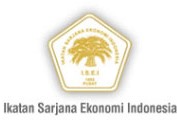Consistency and Reconciliation Model In Regional Development Planning
(1) Faculty of Social Science and Political Science, Jember University,
(2) Faculty of Social Science and Political Science, Jember University,
Abstract
The aim of this study was to identify the problems and determine the conceptual model of regional development planning. Regional development planning is a systemic, complex and unstructured process. Therefore, this study used soft systems methodology to outline unstructured issues with a structured approach. The conceptual models that were successfully constructed in this study are a model of consistency and a model of reconciliation. Regional development planning is a process that is well-integrated with central planning and inter-regional planning documents. Integration and consistency of regional planning documents are very important in order to achieve the development goals that have been set. On the other hand, the process of development planning in the region involves technocratic system, that is, both top-down and bottom-up system of participation. Both must be balanced, do not overlap and do not dominate each other.
regional, development, planning, consistency, reconciliationKeywords
Full Text:
PDFReferences
Abiona, Adekeye and W. Niyi Bello. 2013. Grassroots Participation in Decision-Making Process and Development Programmes as Corrrelate of Sustainability of Community Development Programmes in Nigeria. Journal of Sustainable Development, Vol 6, No. 3; 2013
Arsyad, Lincolin. 2010. Ekonomi Pembangunan. Yogyakarta: STIM YKPN
Aziz Nana dkk. Analisis Perencanaan Pembangunan Daerah Dengan Pendekatan Sistem Lunak (Soft System). (Studi Pada Rencana Kerja Pembangunan Daerah (RKPD) Kota Malang) (https://www.academia.edu/4005385/ accessed on March 28, 2014)
Cavana, Maani. 2000. System Thinking Modelling. Auckland: Pearson Education New Zealand Limited
Checkland Peter, Jim Scholes. 1990. Soft System Methodology in Action. Chicester: John Wiley & Sons Ltd
Fafurida, 2009. Perencanaan Pengembangan Sektor Pertanian Subsektor Tanaman Pangan di kabupaten Kulonprogo. Jurnal Ekonomi dan Kebijakan (JEJAK) Vol. 2 No. 2 2009
Kuncoro, Mudrajat. 2012. Perencanaan Daerah: Bagaimana Membangun Ekonomi Lokal, Kota dan kawasan?. Jakarta: Salemba Empat
Muluk, Khairul. 2007. Menggugat Partisipasi Publik dalam Pemerintahan Daerah (Sebuah Kajian dengan Pendekatan Berpikir Sistem). Malang: Bayumedia Publishing
Ma’arif, Samsul, Prihadi Nugroho dan Lydia Wijayanti. 2010. Evaluasi Efektifitas Pelaksanaan Musrenbang Kota Semarang. Jurnal RIPTEK, Vol 4, No II/2010 pp. 53-62
Naku, Daniel Wandera and Sam Afrane. 2013. Local Community Development and the Participatory Planning Approach: A Review of Theory and Practice. Current Research Journal of Social Science 5 (5): 185-191
Sjafrizal, 2014. Perencanaan Pembangunan Daerah dalam Era Otonomi Daerah. Jakarta: Rajawali Pers
Supriyono, Bambang. 2007. Pembangunan Institusi Pemerintah Daerah dalam Penyediaan Prasarana Perkotaan di Kota Malang. Disertation. Depok: FISIP UI
Pissourios, A. Ioannis. 2014. Top-down and Bottom Up Urban and Regional Planning: Towards a Framework for the use of Planning Standards. European Spatial Research and Policy, Volume 21 Number 1. accessed from esrap.geo.uni.lodz on June 25, 2016
Peraturan Menteri Dalam Negeri No. 54 Tahun 2010. Tentang Pelaksanaan Peraturan No. 8 tahun 2008 Tentang Tahapan, Tata Cara penyusunan, Pengendalian dan Evaluasi Pelaksanaan Perencanaan Pembangunan Daerah
Tjokroamidjojo, Bintoro. 1996. Perencanaan Pembangunan. Gunung Agung:Jakarta
Tim Kajian PKP2A LAN Samarinda. 2010. Efektifitas Perencanaan Pembangunan Daerah di Kalimantan. Portalgaruda.org/article=250660&val. accessed on September 17, 2015
UU No 25 Tahun 2004. Sistem Perencanaan Pembangunan Nasional.
Vasilevska, Ljiijana and Milanka Vasic. 2009. Stretegic Planning as a Regional Development Policy Mechanism- European Context. SPATIUM International Review, No. 21, December 2009. Accessed from www.doiserbia.nb.rs on June 25, 2015
Refbacks
- There are currently no refbacks.

This work is licensed under a Creative Commons Attribution 4.0 International License.






